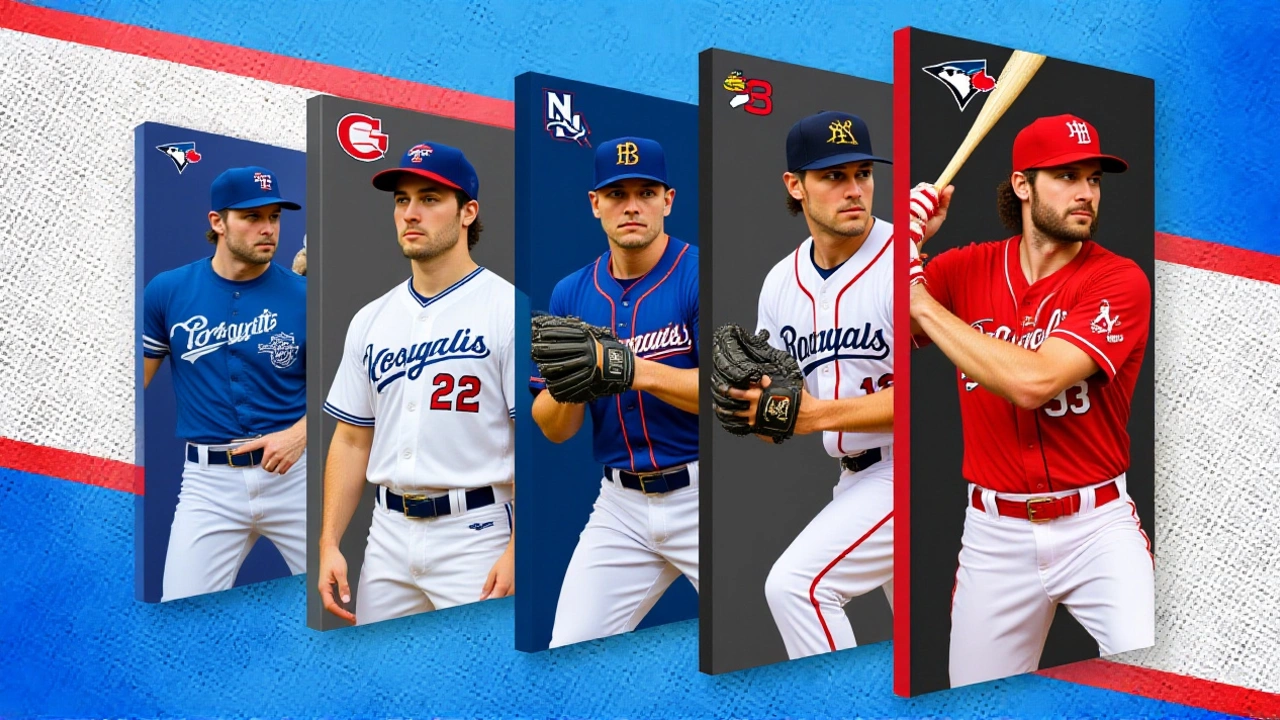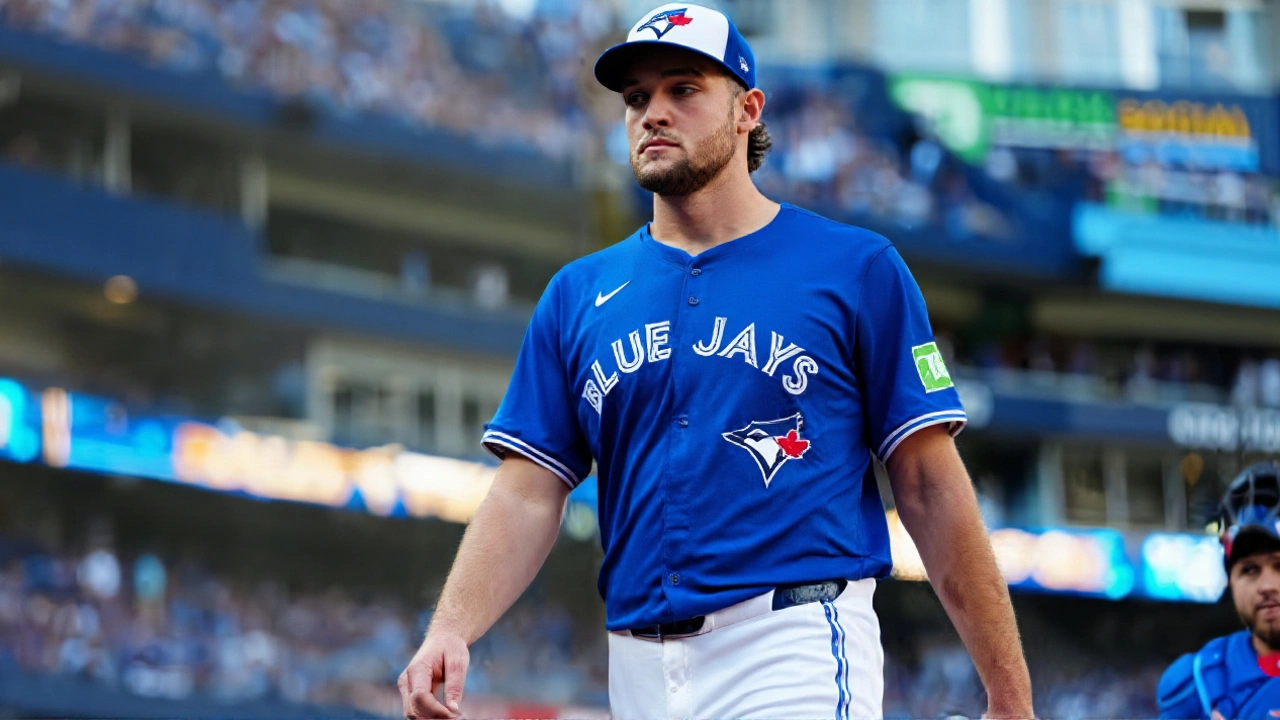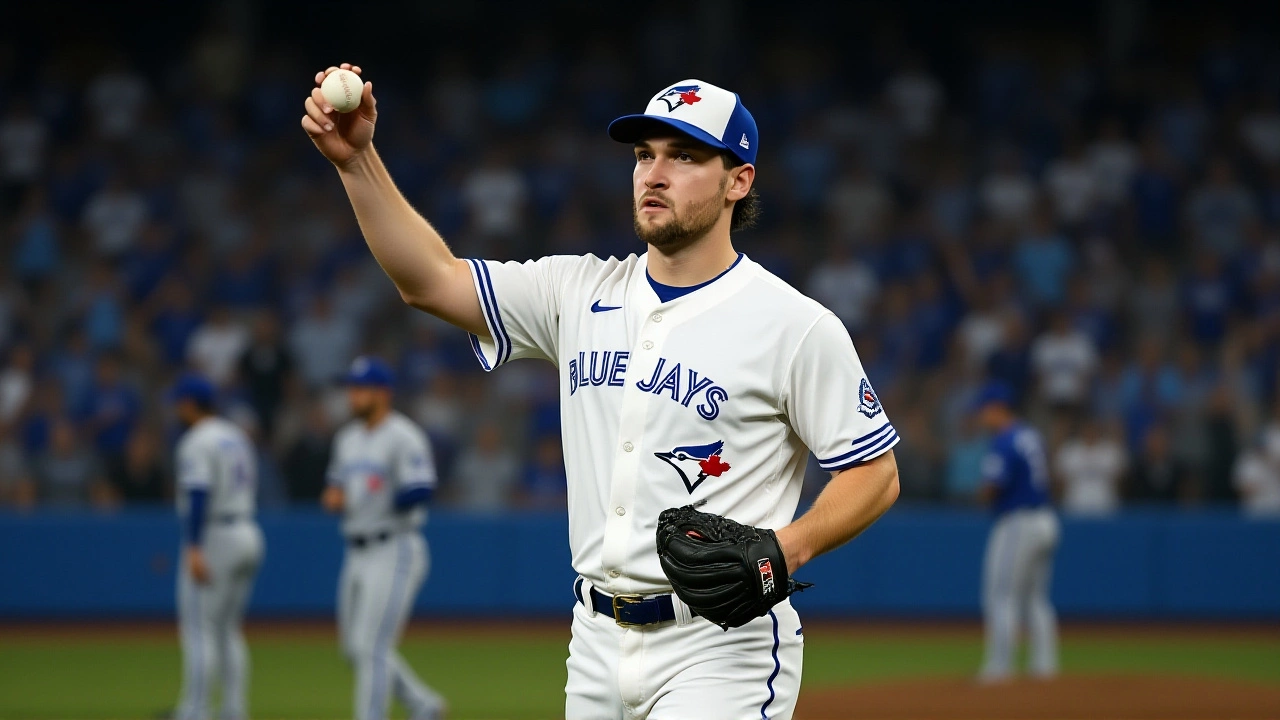When Trey Yesavage, a 22‑year‑old pitcher for the Toronto Blue Jays took the mound at Dodger Stadium on Friday, October 24, 2025, it felt like baseball history was being written in real time. The rookie’s Game 1 start in the World Series pitted him against the defending champions, the Los Angeles Dodgers, and instantly sparked a David‑vs‑Goliath narrative that even the most seasoned fans struggled to ignore.
Background: From East Carolina to the Show
Yesavage’s journey began at East Carolina University, where his split‑finger fastball and a “devastating splitter” caught scouts’ eyes. Drafted 20th overall in June 2024, he signed with Toronto and started the 2025 season in Class‑A Dunedin. In front of an audience of exactly 327 fans on April 8, he threw six scoreless innings – a modest debut that belied the meteoric rise to come.
Rapid promotions followed: High‑A Vancouver on May 20, Double‑A New Hampshire on June 12, and Triple‑A Buffalo on August 12. By the time September rolled around, Yesavage had logged three regular‑season starts for the Blue Jays, posting a 1‑0 record with a 3.21 ERA and 16 strikeouts over 14 innings. The numbers were good, but the real story unfolded in the postseason.
Road to the World Series: Postseason Heroics
In the AL Division Series on October 8, Yesavage blanked the New York Yankees for 5 1/3 innings, fanning 11 batters. The performance earned him a reputation as a clutch arm, even if his next turn was tougher: on October 15, he surrendered five runs in four innings against the Seattle Mariners in the ALCS, costing Toronto a win. Yet he bounced back spectacularly on October 20, limiting Seattle to two runs over 5 2/3 innings and forcing a decisive Game 6 that sent the Blue Jays to the World Series for the first time since 1993.
In total, Yesavage entered Game 1 with four postseason starts – more than his three regular‑season outings. It’s a stat line no one had ever seen before, and it adds a layer of intrigue that analysts on ESPN and MLB.com can’t stop dissecting.
Game 1 Matchup: Yesavage vs. Blake Snell
The stakes were high. Toronto’s manager John Schneider announced on October 23 that Yesavage would open the series, saying, “It made sense to hold Kevin for a day.” His decision meant the 22‑year‑old would face veteran right‑hander Blake Snell of the Dodgers, while the Dodgers slated Yoshinobu Yamamoto for Game 2.
During the first four innings, Yesavage recorded five strikeouts, including the first out of the series – a swipe of the fastball that sent Dodgers star Shohei Ohtani back to the dugout. He kept the game scoreless through the first inning, then allowed a lone run in the fourth. The final line: 4 IP, 1 R, 5 K, 1 BB. Not a masterpiece, but solid enough to keep Toronto in the game.

Reactions: Fans, Analysts, and the Media
Toronto fans erupted outside the Rogers Centre as the broadcast cut to the live feed. “We’ve never seen anything like this,” said longtime Blue Jays supporter Maria Alvarez, her voice trembling with excitement. On social media, the hashtag #YesavageStarter trended within minutes, pulling in over 120,000 posts across Twitter and Instagram.
Analysts were equally split. Former pitcher turned commentator Jim “The Arm” Martinez praised the youngster’s poise, noting, “His splitter still looks like a knife. If he can stay composed, he’s a real asset.” Conversely, Dodgers beat‑writer Claire Liu warned, “Los Angeles can still exploit his inexperience. One slip and the series could tilt.”
What It Means: A New Narrative for the Blue Jays
Beyond the on‑field tactics, Yesavage’s start signals a shift in how Toronto approaches roster construction. The team, traditionally reliant on veteran arms like Kevin Gausman and Max Scherzer, is now willing to gamble on youth when the moment calls for it. This could reshape future trade discussions and player development strategies across the league.
For the Dodgers, the decision to start Snell reflects a confidence in experience. They’re chasing a back‑to‑back championship – a feat not achieved since the Yankees’ three‑peat from 1998‑2000. If the Dodgers win, they’ll rewrite a decades‑long drought and cement a dynasty.

Looking Ahead: Games 2‑7 and Beyond
Game 2 is slated for Saturday, October 25, with Toronto yet to name its starter. Schneider hinted that “the veteran trio is ready,” leaving Gausman, Scherzer, and Shane Bieber in the mix. The series will continue at Dodger Stadium for Games 3 and 4 before shifting back to Toronto for Games 5‑7, should they be necessary.
Beyond the diamond, broadcasters expect record‑breaking television ratings. Nielsen projections put the opening night at an average of 14.5 million viewers, the highest for a World Series opener since 2017. Advertising revenue could top $200 million, underscoring the economic stakes for both markets.
Frequently Asked Questions
How does Yesavage's start affect the Blue Jays' chances?
Yesavage brings a fresh arm and a uniquely effective splitter, which can keep Dodgers hitters off‑balance. While his inexperience is a risk, his strong postseason track record suggests he can handle pressure, giving Toronto a better-than‑expected chance to steal a win in Game 1.
What are the Dodgers' expectations for Game 1?
The Dodgers expected Snell to provide a steady start, limiting early runs and allowing their powerful lineup to build momentum. They aimed to exploit any rookie mistakes, banking on veteran poise to secure a comfortable lead.
Who could start for Toronto in Game 2?
Manager Schneider mentioned all three veterans – Gausman, Scherzer, and Bieber – are ready. Analysts predict Gausman may get the nod, given his recent heavy workload that could be balanced with extra rest.
What does this series mean for future rookie usage?
If Yesavage performs well, teams may feel more comfortable promoting high‑potential pitchers earlier, especially in high‑stakes games. It could spark a trend of younger arms seeing postseason action sooner than traditionally expected.
Will the World Series viewership break records?
Early Nielsen data suggests the opening night could attract 14.5 million viewers, potentially setting a new benchmark for a World Series opener and underscoring the massive fan interest in the rookie‑vs‑veteran storyline.
